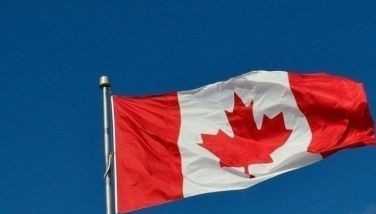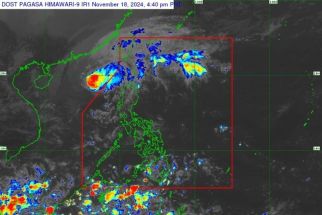No need to impose price control — DTI

May 8, 2004 | 12:00am
Trade and Industry Secretary Cesar V. Purisima does not see the need to impose price controls following a hike in prices of manufactured goods due to the recent round of oil price increases.
"Petroleum used in manufacturing is different from gas and diesel for cars," Purisima said. "What we had was an increase in pump prices, and not bunker fuel. Since transportation cost only accounts for two percent of total manufacturing cost, the increment increases of gasoline prices should not impact so much on prices of basic goods and prime commodities," he explained.
He further argued that "oil pump price increases are not among the conditions set by the Price Act for instituting price control."
Purisima cited Section 6 of the Price Act which sets the following conditions for automatic price control: When an area is declared under a state of calamity; when an area is declared to be under an emergency; when the writ of habeas corpus has been suspended; when an area is placed under martial law; when an area is under a state of rebellion; and when an area is under a state of war.
The DTI had announced earlier that it would crack down on profiteers following reports that several small retailers have increased their selling price for milk products, coffee and even flour.
Trade Undersecretary Adrian S. Cristobal Jr. had admitted that local milk manufacturers have increased their prices by five to eight percent due to the continued depreciation of the peso against the dollar.
The price increase by the local milk manufacturers, Cristobal explained, is reasonable considering that they have held off on a price adjustment in the past two to three years.
Unfortunately, though, Cristobal said, small retailers have reportedly increased their retail prices of milk products and coffee by more than 10 percent even up to 12 percent.
Under the Price Act, Cristobal warned, a price increase of more than 10 percent that is not justified is subject to sanctions.
The DTI, thus, is going into a preventive mode by stepping up its price monitoring.
Cooking oil prices, Cristobal said, have also gone up due to the increase in the world price of copra which was previously at P14 per kilo and is now at P23 per kilo.
Chicken prices have also gone up as consumers are now convinced that local poultry have not been affected by the notorious bird flu virus.
"Petroleum used in manufacturing is different from gas and diesel for cars," Purisima said. "What we had was an increase in pump prices, and not bunker fuel. Since transportation cost only accounts for two percent of total manufacturing cost, the increment increases of gasoline prices should not impact so much on prices of basic goods and prime commodities," he explained.
He further argued that "oil pump price increases are not among the conditions set by the Price Act for instituting price control."
Purisima cited Section 6 of the Price Act which sets the following conditions for automatic price control: When an area is declared under a state of calamity; when an area is declared to be under an emergency; when the writ of habeas corpus has been suspended; when an area is placed under martial law; when an area is under a state of rebellion; and when an area is under a state of war.
The DTI had announced earlier that it would crack down on profiteers following reports that several small retailers have increased their selling price for milk products, coffee and even flour.
Trade Undersecretary Adrian S. Cristobal Jr. had admitted that local milk manufacturers have increased their prices by five to eight percent due to the continued depreciation of the peso against the dollar.
The price increase by the local milk manufacturers, Cristobal explained, is reasonable considering that they have held off on a price adjustment in the past two to three years.
Unfortunately, though, Cristobal said, small retailers have reportedly increased their retail prices of milk products and coffee by more than 10 percent even up to 12 percent.
Under the Price Act, Cristobal warned, a price increase of more than 10 percent that is not justified is subject to sanctions.
The DTI, thus, is going into a preventive mode by stepping up its price monitoring.
Cooking oil prices, Cristobal said, have also gone up due to the increase in the world price of copra which was previously at P14 per kilo and is now at P23 per kilo.
Chicken prices have also gone up as consumers are now convinced that local poultry have not been affected by the notorious bird flu virus.
BrandSpace Articles
<
>
- Latest
- Trending
Trending
Latest
Trending
Latest
Recommended




























